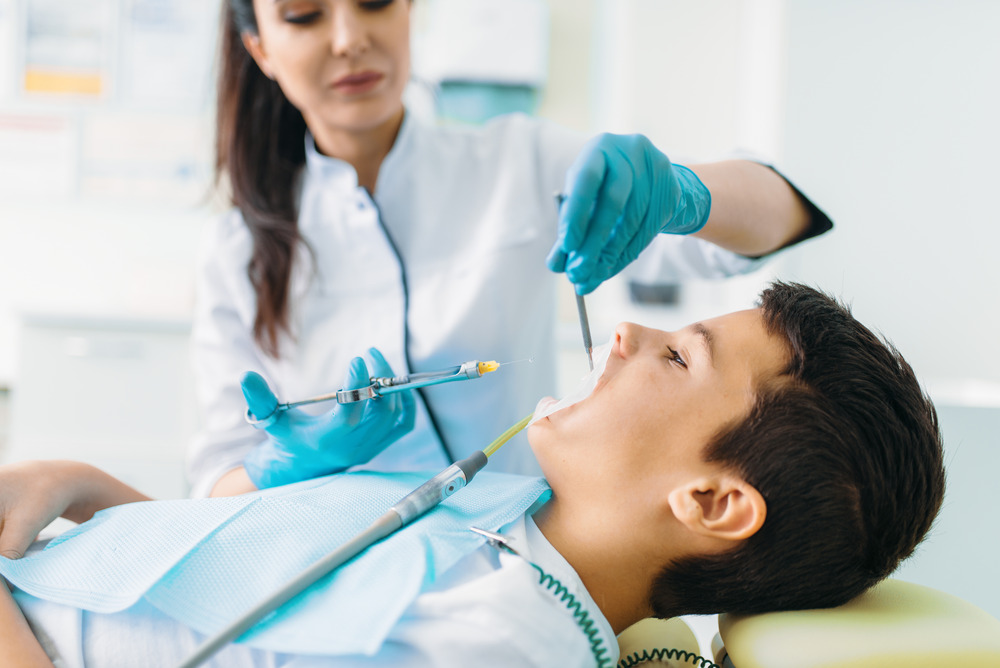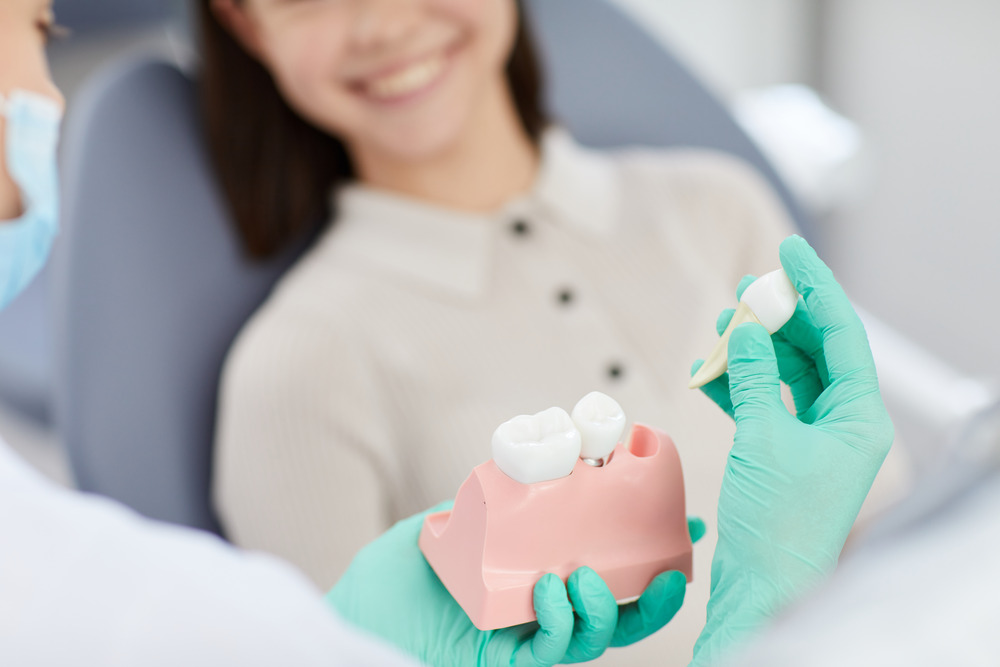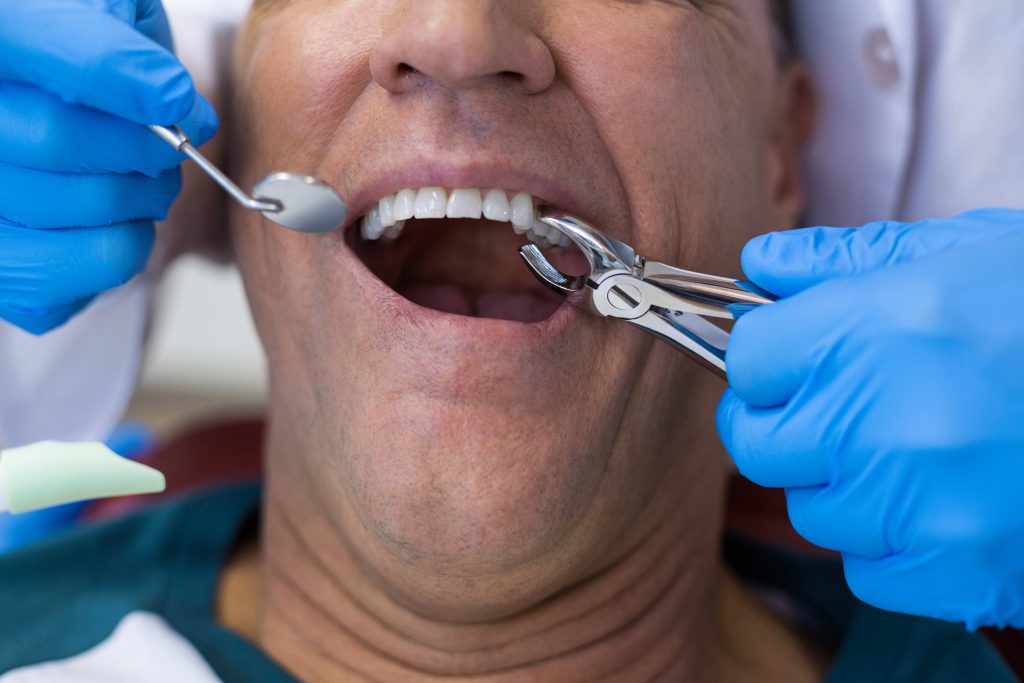Tooth Extraction in North York
Dr. Claire Benmergui
Family and Cosmetic Dentistry
Tooth extraction is usually a last resort dental treatment. If you have considerable tooth damage, severe tooth decay, or serious dental diseases like periodontitis (gum disease), you need tooth extraction services.
At Dr. Claire Benmergui Family & Cosmetic Dentistry Clinic we offer tooth extraction services that are comfortable and provide that much-needed relief. Our services incorporate sedation dentistry to ensure patients with dental anxiety or those who fear dental procedures can undergo tooth extraction with ease and comfort.
Ready to have your tooth extracted in a leading family and cosmetic dentistry clinic in North York? Book an appointment NOW!
You can also CALL: 416-226-2500, email: dr.clairebenmergui@rodgers.com, or visit our dental office in person (Google Maps).
Who Needs a Tooth Extraction? Main Causes of Tooth Removal
As mentioned, tooth extraction is a last resort. The main reasons why you might need it include: (1)
- Tooth Fracture: A tooth with a fracture that extends below the gum line and cannot be repaired with restorative procedures may need to be extracted.
- Infection: Severe infection or abscess that does not respond to other treatments may necessitate tooth removal to prevent the spread of infection.
- Impact on teeth such as wisdom teeth that fail to erupt fully/grow at the wrong angle
- Gum disease or periodontal disease, which impacts tissue and bone around the affected tooth/teeth
- Crowded teeth: In orthodontic treatment, extra teeth may need to be removed to make space for the alignment of other teeth.
Our Tooth Extraction Services in North York
Simple Extraction
A simple extraction is a procedure where a tooth that is visible above the gum line is removed. This is typically performed using local anesthesia and involves minimal surgical intervention.
Surgical Extraction (Wisdom Teeth Removal)
If the tooth in question is hard to access, or badly damaged/impacted, we perform surgical extractions. Surgical extraction is common in the case of wisdom teeth extraction. In such instances, an incision is made in the gum tissue to fully expose the tooth before removing it and other soft tissue (if needed).
Our Dental Extraction Procedure
We offer tooth extraction dental services in four simple steps:

Step 1: Preparation
Our dental extraction process begins when you book an appointment. Our dental team (led by Dr. Claire) will assess your tooth/teeth, adjacent teeth and surrounding tissue.
This step may involve a dental x-ray to determine the extent of tooth damage and jawbone health. We also collect our patient’s medical history and determine if tooth extraction is warranted.

Step 2: Local Anesthesia
The area is numbed with local anesthesia, and in some cases, light form of sedation may be used. We have sedation option including “laughing gas” (nitrous oxide) for our patients to eliminate dental anxiety and/or offer a more comfortable experience. Enjoy painless tooth extraction with us.

Step 3: Tooth Extraction
After anesthesia, our experienced general dentist – Dr. Claire Benmergui, will gently loosen and remove the tooth/teeth in question. The process may involve making incisions in the gum to improve access for extensive decay or badly damaged teeth below the gumline.
After tooth extraction, the socket is then cleaned and disinfected. Bone grafting and dental implants or prosthetic tooth/teeth can be installed to prevent bone loss (if this option was discussed and approved in advance).

Step 4: Aftercare for a Proper Healing Process
To lower the risk of complications linked to tooth extraction, tooth infection, delayed healing, excessive bleeding, swelling, discomfort, etc., patients are given some medication (antibiotics and pain medication). You’ll also get aftercare oral health/oral hygiene tips which you must follow to heal quickly and effectively.
How Long Will a Tooth Extraction Take to Heal?
Generally, it takes 7-10 days for granulation tissue to form and protect the tooth extraction site. However, healing time will differ depending on the extraction in question. Generally, wisdom tooth extractions take longer to heal than other teeth extractions (2).
Talk to your dentist to get a precise timeline. It is also recommendable to see your dentist regularly to assess your healing progress and understand preventive care or the do’s/don’ts i.e. soft foods to eat to heal faster.
Do you need more information about tooth extraction in North York including the cost of tooth extraction, detailed oral surgery procedure, emergency dental extraction, stress-free, comfortable tooth extraction, and more?
Dr. Claire Benmergui Family & Cosmetic Dentistry Clinic has been offering tooth extraction and other family and cosmetic dentistry services in North York for 30+ years.
Book same-day appointments with a tested expert tooth extraction service. Our experienced dentist is waiting to talk to you and offer exceptional restorative treatments.
dr.clairebenmergui@rogers.com
416.226.2500
1575 Steeles Avenue East, Suite 104 North York, Ontario, M2M 3Y7 Canada
References
[1] https://www.medicalnewstoday.com/articles/327515
[2] https://www.ncbi.nlm.nih.gov/books/NBK470448/


